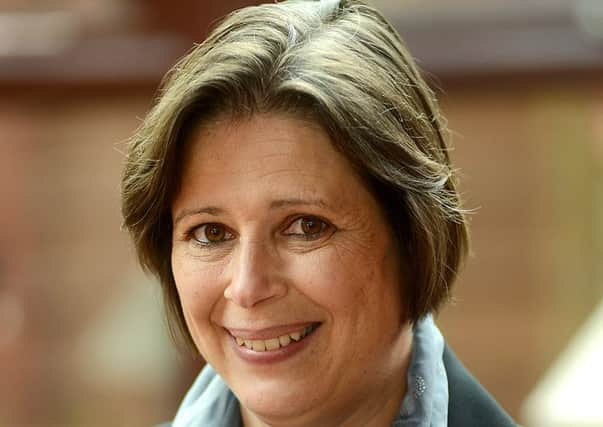The Staff Room: An insight into education in the district written by Catherine Jackson


You might even say it’s become fashionable to wear a poppy this year. I’ve seen poppies in red, white for peace and purple to remember the animals which were killed in service. I’ve seen them in the form of buttons, the usual paper, crocheted, knitted, layered, sparkling and wonderfully arty.
Many of the sixth formers I teach are perilously close in age to the young men who faced the nightmarish conditions in Europe 100 years ago.
Advertisement
Hide AdAdvertisement
Hide AdIn our school we are lucky to have displays of names, photographs and histories of the boys - the former pupils - who fought or served in other ways. The poignancy of their fates is something which hits hard even today.
They deserved our respect then, and they deserve it now.
I’m glad there has been so much coverage of the First World War this year. Every year, whatever our own individual views on the rights and wrongs of war, many teachers address the topic of war, whether we be history teachers, English literature teachers, language teachers, or whatever.
I have heard colleagues express the view recently that, as a country, we might have overdone the commemorations for the start of the war and that the main focus should be the commemoration of the end of the war in 2018.
I have to say I disagree.
Another colleague of mine was talking to a sixth former last week. The student’s family is local and she was not sure what part her ancestors played in the war – if they even actually did. I do not think this student is alone. We see, on television programmes like Who Do You Think You Are? just how easy it is to lose sight of who our forebears were and what they did. When we don’t talk to our elder relatives (and how many teenagers really recognise the importance of this?) their past quickly fades into the mists of time.
Advertisement
Hide AdAdvertisement
Hide AdMy own generation probably had more of an idea about the involvement of our grandparents. But I don’t think we were so in touch with the possibility of war affecting us on such a large scale.
The Second World War was history then. Now though, we have Syria, Afghanistan and Iraq. I certainly remember being made by my mother to sit and watch the annual Festival of Remembrance at the Albert Hall on television as well as the Remembrance Day parade. It was vital for us to be made aware then and it is vital for our children today.
It is also important in this area with the prevalence of mining, to remember our miners. A reserved occupation during the First World War, miners in and around Wakefield and Pontefract didn’t make a song and dance of their contribution. If a young man was not away at the frontline, he could potentially have been a target for those looking to name and shame the shirkers. They were most definitely not shirkers, but maybe that’s why the sixth former concerned did not know what her ancestor had done. Maybe he just hadn’t told of the part he played.
Maybe he didn’t feel he had even played a part. It would be a desperate pity if the contribution of these men, who were vital to the running of the country at home, was unsung. They literally did, in the words of Ivor Novello’s 1914 song, ‘Keep the home fires burning’. The sacrifice was there – just different, that’s all.
Advertisement
Hide AdAdvertisement
Hide AdThere has been recognition of the part many miners played in the digging of trenches and of the underground tunnels, through books and films, but anything which causes our students to question and connect with the past and the part played by local men and women has to be a good thing.
I welcome the publicity and the news items concerning the poppies around the Tower of London, and even though I may not be the first to follow a fashion statement, I do not, as I might have in the past, object to the wearing of knitted or crocheted poppies. I agree with those who say that only when we understand the past will we be able to move forward with any degree of success and our young people are the ones who will do that for us.
I will, therefore, continue to buy my paper poppy, but maybe, in order to keep the questions flowing and to prompt more students to ask about their forebears, my next challenge will be to learn how to knit a sparkly poppy.